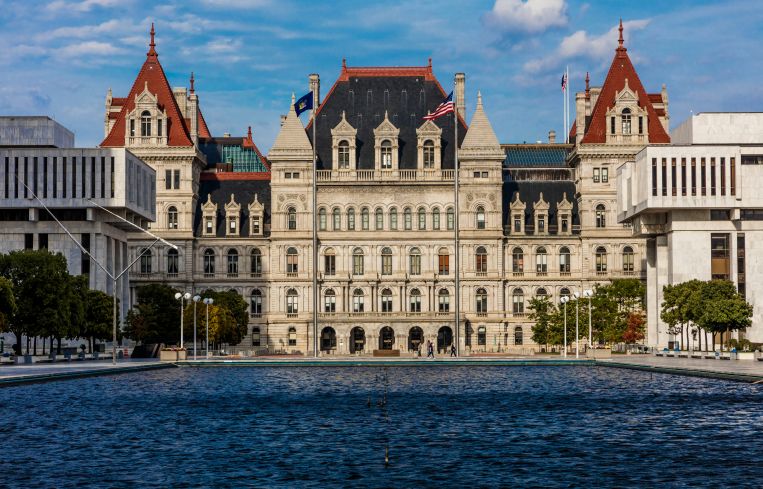The Affordable Housing Policy That New York State Must Act On
By Jolie Milstein January 29, 2024 9:57 am
reprints
Albany is back in session, and housing is once again atop New Yorkers’ priority list. Lawmakers have an opportunity to address New York’s growing affordable housing shortage and expand our economic safety net by enacting key solutions that Gov. Kathy Hochul initially outlined in her executive budget.
Last year, lawmakers left New Yorkers disappointed by the lack of meaningful progress on housing, and that failure must not be repeated. The statistics are harrowing: About 73 percent of extremely low-income renter households in New York remain severely rent-burdened, meaning they direct over half of their income toward housing, and households of all income levels grapple with rising costs.
New York state can and must do better in 2024. The good news is that Hochul’s budget has set up the state for success. Now, it is up to the legislature to work with her to tackle the housing crisis in a way that provides real relief for those in need.

One priority is to replace the 421a tax abatement program, which created thousands of affordable housing units that would have otherwise not been built. Since its expiration in 2022, policymakers have failed to replace this vital tool for affordable housing development.
A tax abatement program is essential, and it is one of the most direct ways for Albany to unlock additional housing production in the five boroughs. Hochul correctly noted in her State of the State address and in her Executive Budget proposal that this is a priority for housing development. The New York State Association for Affordable Housing (NYSAFAH) agrees that our policymakers must come together to enact an as-of-right tax abatement this year.
Hochul also proposed addressing skyrocketing insurance premiums and the denial of insurance coverage by prohibiting insurance companies from asking about or denying a landlord coverage based on tenant income or use of housing vouchers. NYSAFAH, which has been at the forefront of seeking solutions to unsustainable insurance costs and coverage issues, is committed to outlawing these practices and, in the process, preserving vital funds for additional investment in affordable housing.
However, a crucial issue omitted in the executive budget that requires immediate attention is the funding for rental arrears across New York’s affordable housing. A December report found that 34 percent of affordable housing had tenants who were at least two months overdue on their rent. These shortfalls have imperiled buildings with thousands of affordable housing units by dramatically reducing building reserves and deferring necessary capital investments and maintenance.
To ensure these buildings stay functional and to prevent additional housing instability for tenants, we need state lawmakers to create a rescue fund of $250 million. This fund will address tenant arrears for the most vulnerable buildings and protect affordable units that may otherwise be lost. Direct relief will meaningfully close the gap and provide the immediate solution necessary to stabilize at-risk homes.
Housing cannot be an afterthought — or worse, ignored — in New York’s 2024-25 state budget. NYSAFAH urges the legislature to work with Gov. Hochul to invest in affordable housing preservation and production across New York. Failure is not an option, as New York is at risk of exacerbating an already dire situation and forcing New Yorkers to wait another 12 months for their elected officials to address the growing housing crisis.
Jolie Milstein is the President and CEO of the New York State Association for Affordable Housing.



